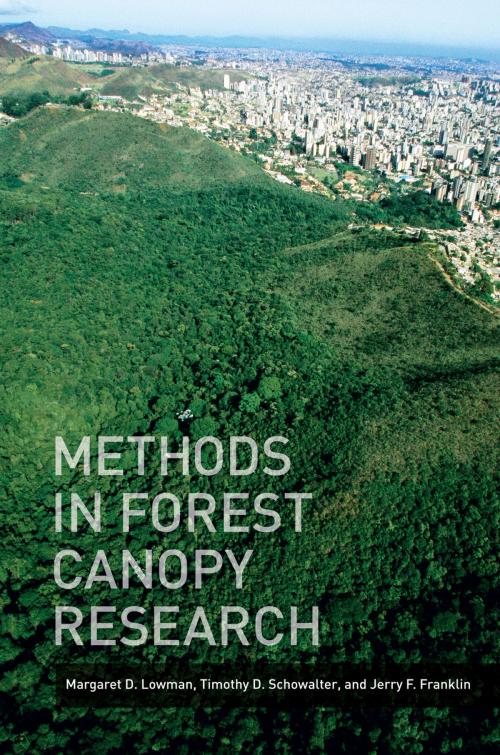Methods in Forest Canopy Research
Nonfiction, Science & Nature, Nature, Plant Life, Plants, Environment, Ecology| Author: | Margaret D. Lowman, Timothy Schowalter, Jerry Franklin | ISBN: | 9780520953925 |
| Publisher: | University of California Press | Publication: | November 26, 2012 |
| Imprint: | University of California Press | Language: | English |
| Author: | Margaret D. Lowman, Timothy Schowalter, Jerry Franklin |
| ISBN: | 9780520953925 |
| Publisher: | University of California Press |
| Publication: | November 26, 2012 |
| Imprint: | University of California Press |
| Language: | English |
Poised between soil and sky, forest canopies represent a critical point of exchange between the atmosphere and the earth, yet until recently, they remained a largely unexplored frontier. For a long time, problems with access and the lack of tools and methods suitable for monitoring these complex bioscapes made canopy analysis extremely difficult. Fortunately, canopy research has advanced dramatically in recent decades. Methods in Forest Canopy Research is a comprehensive overview of these developments for explorers of this astonishing environment. The authors describe methods for reaching the canopy and the best ways to measure how the canopy, atmosphere, and forest floor interact. They address how to replicate experiments in challenging environments and lay the groundwork for creating standardized measurements in the canopy—essential tools for for understanding our changing world.
Poised between soil and sky, forest canopies represent a critical point of exchange between the atmosphere and the earth, yet until recently, they remained a largely unexplored frontier. For a long time, problems with access and the lack of tools and methods suitable for monitoring these complex bioscapes made canopy analysis extremely difficult. Fortunately, canopy research has advanced dramatically in recent decades. Methods in Forest Canopy Research is a comprehensive overview of these developments for explorers of this astonishing environment. The authors describe methods for reaching the canopy and the best ways to measure how the canopy, atmosphere, and forest floor interact. They address how to replicate experiments in challenging environments and lay the groundwork for creating standardized measurements in the canopy—essential tools for for understanding our changing world.















